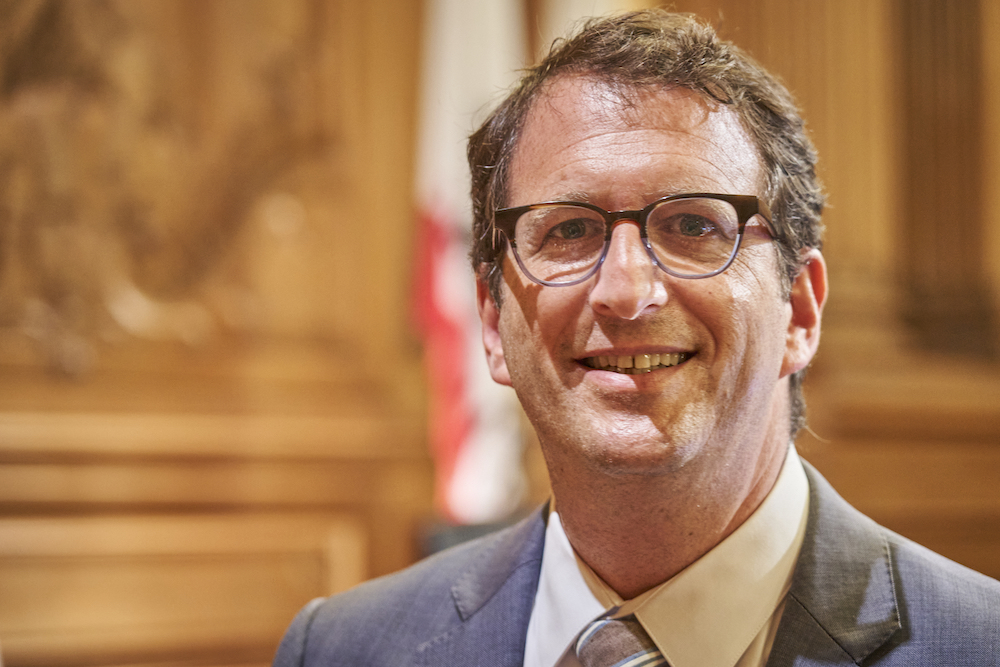The Land Use and Transportation Committee is now the center of discussion of how the state, thanks to our own delegation in Sacramento, is screwing San Francisco—and Monday’s meeting was a perfect example.
Sup. Aaron Peskin has a resolution that would put the city on record opposing a bill by state Sen. Scott Wiener removing parts of the western edge of the city from the jurisdiction of the Coastal Commission. He’s a former member of the commission, and Sup. Rafael Mandelman is currently a commission alternate, and, Peskin said, “I was shocked not to be consulted.” Wiener never called Mandelman either, he said.

The bill is done “under the guise of housing, but nothing could be further from the truth.” In 1986, San Francisco adopted a coastal land-use plan that the commission approved; since then, most development has been entirely under local control. Only twice has anyone appealed to the Coastal Commission, and both appeals failed.
Meanwhile, “the Coastal Commission has been the pre-eminent agency addressing sea-level rise and coastal erosion,” Peskin said. “The idea of taking all of this land out of Coastal Commission jurisdiction makes no sense.”
It’s particularly interesting since Wiener, and the rest of the SF legislative delegation, has been moving aggressively to usurp local control over land use—except here, where the developers want the state out of the way so they can build more luxury housing on the coast.
That’s exactly what the voters opposed in 1972 when they passed a law that is now looked at as an international standard for coastal protection.
There’s a potential for a serious statewide precedent here: “If one state senator can rip out coastal protections in his or her district, the impact is huge,” Peskin said. “I am worried that Sacramento is being ruled by special interest groups including those that would like to see the end of the Coastal Act.”
Sup. Myrna Melgar declined to support Peskin’s resolution, saying that the City Planning Department and Wiener’s Office are in discussions on the issue. She also said that some of the religious institutions on Brotherhood Way, which are in the coastal protection zone, might want to build housing on their parking lots—which the state now allows.
But there is no indication anywhere that the Coastal Commission would oppose that.
Peskin’s measure advanced to the full board on a 2-1 vote, and cleared the full board 8-3, with Sups. Matt Dorsey, Joel Engardio, and Myrna Melgar opposed.
The next measure involved changes to the Planning Code to bring the city’s rules approving accessory development units into line with what the state wants.
The Yimby speakers, and the city planners, repeatedly said that the city has to approve the new state rules to keep San Francisco in the “pro-housing” category that allows the city to continue getting money for affordable housing and transit.
Peskin has long pushed for the city to require that people who get permits for ADUs accept as a part of the deal that their new units are covered by rent control. But thanks to state Assemblymember Phil Ting, the new state law on ADUs bars the city from imposing those requirements.
Peskin offered a series of amendments to the new rules that would include rent control—rules that the City Attorney’s Office says are consistent with state law. Gov. Gavin Newsom’s Department of Housing and Community Development disagrees.
So, Peskin had to withdraw those amendments.
Then the Yimbys came to testify, and said repeatedly that the city has to approve the state mandates to keep its “pro-housing designation.
That lead Sup. Dean Preston to make some comments that really sum up how the city and the state are interacting:
It’s funny when things get normalized into our conversation. We went from the conceiving of the term “pro-housing” by developer lobbyists to the adoption of that term by our local and then national media,
thanks to a well funded organizing campaign to normalize the term
“pro housing” [which really means] pro-market-rate deregulation. …
So it’s as risk as I said at prior hearing based on the levels of deregulating and encouraging market-rate housing that is not affordable.
So our pro housing is not at-risk because this administration refuses to see spend over hundreds of millions of dollars of prop I funding on affordable housing. We don’t see the state intervening and say you’re not pro-housing because you’re not using these funds for affordable house housing.
You don’t see the state spring into action.
I don’t see them weighing in here yet on whether we should build affordable housing on a city-owned affordable housing site where the city has been promising now for decades and reneging on promises—but we don’t get a warning letter from the administration that if we don’t act on that and build 100 units of affordable housing were not pro-housing, right?
We don’t get that kind of warning letter when the administration reneges a plan.
And the list can go on.I also want to point out that for a lot of advocates who cite these deadlines and these threats from the state, as if they came out of nowhere, I just want to be clear that these are the same advocates that advocated for the same policies that create this absurd system where the state conditions our affordable housing and transportation money on the extent to which we deregulate and streamline the production of unaffordable housing.






